FaceDetection
Latest
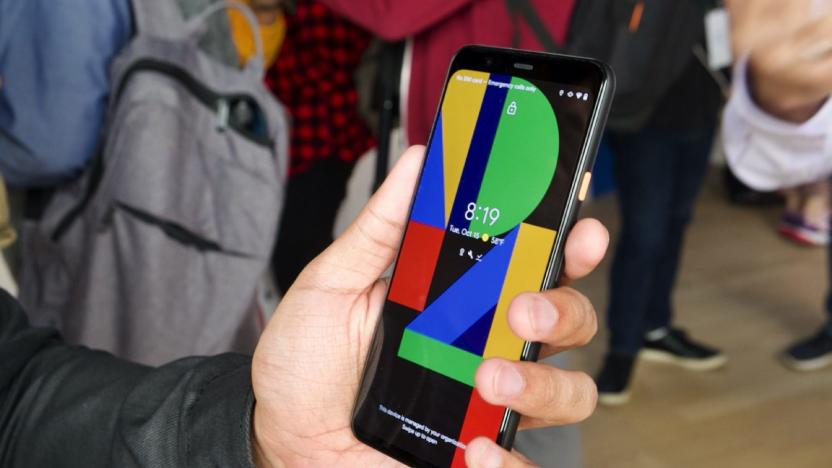
Google will fix Pixel 4 face unlock issue with 'eyes open' update
Shortly after Google's Pixel 4 launch last week, the BBC discovered that its Face Unlock biometric security system would unlock your phone, even if your eyes were closed. That would mean that someone could unlock your phone even if you were sleeping, which makes the Pixel 4 a less secure than Apple's iPhone Face ID, which requires "attention" or open eyes.
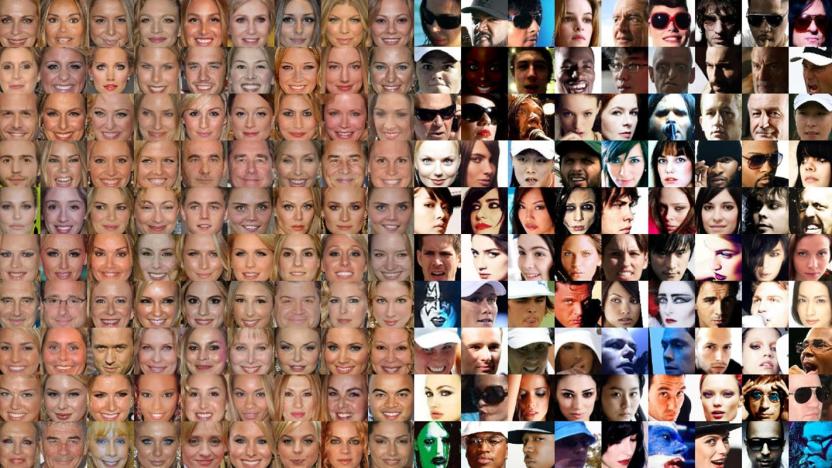
MIT hopes to automatically 'de-bias' face detection AI
There have been efforts to fight racist biases in face detection systems through better training data, but that usually involves a human manually supplying the new material. MIT's CSAIL might have a better approach. It's developing an algorithm that automatically 'de-biases' the training material for face detection AI, ensuring that it accommodates a wider range of humans. The code can scan a data set, understand the set's biases, and promptly resample it to ensure better representation for people regardless of skin color.
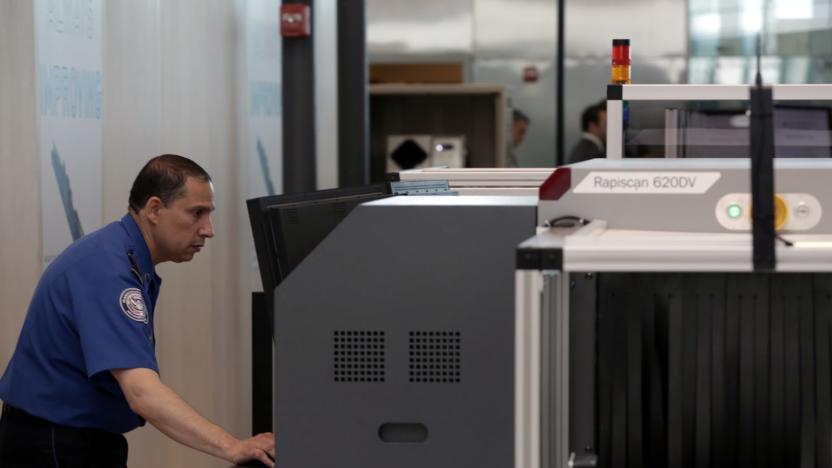
Face scanning in US airports is rife with technical problems
If you've had misgivings about the effectiveness of Homeland Security's airport face scanning (let alone the privacy implications), you're not alone. The department's Inspector General has issued a report warning that the scanning system is struggling with "technical and operational challenges." Customs and Border Protection could only use the technology with 85 percent of passengers due to staff shortages, network problems and hastened boarding times during flight delays. The system did catch 1,300 people overstaying their allowed time in the US, but it might have caught more -- and there were problems "consistently" matching people from specific age groups and countries.
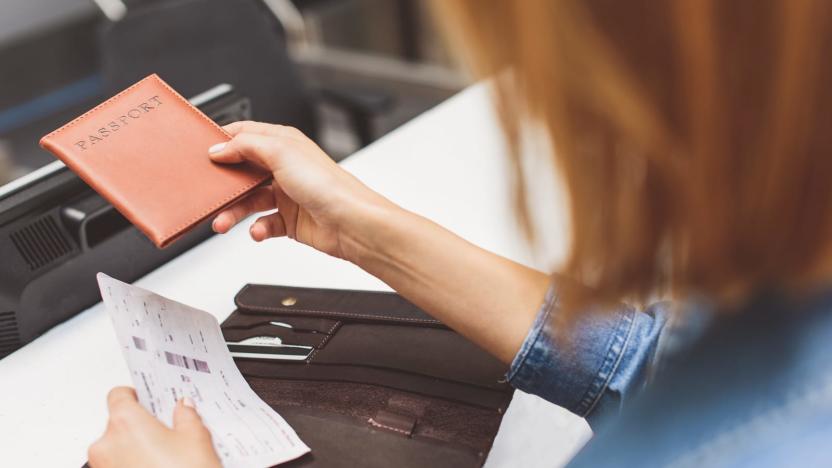
US airports' new facial recognition tech spots first imposter
The facial recognition technology the US is testing for airports has caught its first imposter merely three days after Washington Dulles International started using it. According to US Customs and Border Protection (CBP), a 26-year-old man from Sao Paulo, Brazil successfully fooled people with a French passport until he presented it to a Dulles officer who used the new facial comparison biometric technology. The system determined that his face wasn't a match with the person in the passport, and he was sent for a comprehensive check, which revealed the Republic of Congo ID hidden inside his shoe.

Samsung Galaxy S9 may pack more reliable face recognition
Samsung has hinted that the Galaxy S9 might include more advanced face recognition, but we're now getting clues as to what's involved. SamCentral's sleuthing in the settings APK for the Galaxy Note 8's Oreo beta has discovered a hidden Intelligent Scan feature that uses both camera-based face detection and the iris scanner in tandem for "better accuracy and security" and improved results in "low or very bright" lighting. Given that the iris scanning on the S8 and Note 8 can be finnicky, this could deliver a much more consistent experience when you're unlocking your phone or accessing secure info.
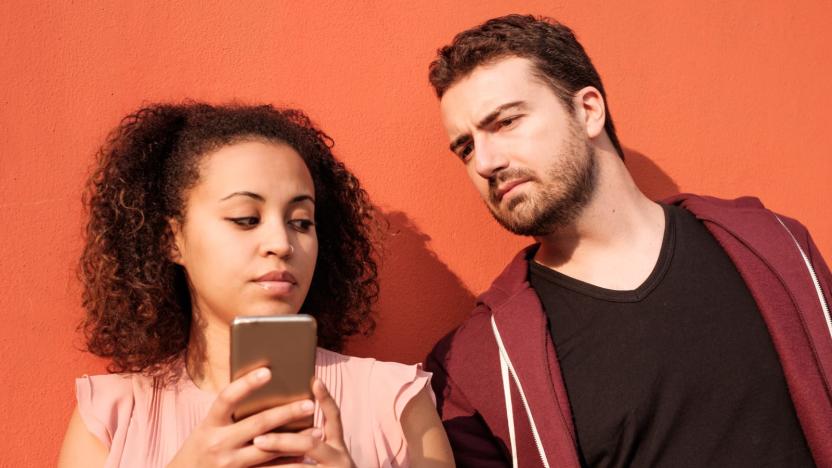
Google's AI can tell when someone is peeping at your phone
Face detection isn't just for signing you in or making silly animations... it could also keep nosy bus passengers from snooping on your phone. Google researchers Hee Jung Ryu and Florian Schroff are about to present research into an "electronic screen protector" that uses AI-based eye detection in the front camera to determine when someone is looking over your shoulder. In the demo video (below), the app switches over to a camera view that shames the spy with rainbow vomit -- you'd know someone was being intrusive before they had time to feign innocence.
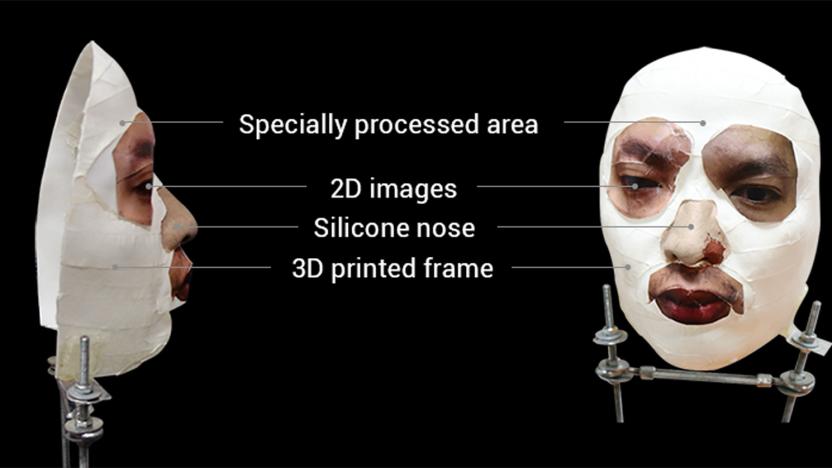
Security firm claims to thwart iPhone X's Face ID with a mask
When Apple introduced Face ID security alongside the iPhone X, it boasted that even Hollywood-quality masks couldn't fool the system. It might not be a question of movie-like authenticity, however -- security researchers at Bkav claim to have thwarted Face ID by using a specially-built mask. Rather than strive for absolute realism, the team built its mask with the aim of tricking the depth-mapping technology. The creation uses hand-crafted "skin" made specifically to exploit Face ID, while 3D printing produced the face model. Other parts, such as the eyes, are 2D images. The proof of concept appears to work, as you can see in the clip below. The question is: do iPhone X owners actually have to worry about it?

Google Photos can pick your pet out of a furry lineup
Google Photos has long been adept at recognizing animals in a generic sense. But let's be honest: the real reason you're digging through photos is to find shots of your specific pets when they were little balls of fur. Accordingly, Google has made those pet searches much easier. Photos is now smart enough to recognize individual and dogs, placing their shots alongside people. You can name pets, too, so you can look for Chairman Meow or Rover instead of typing in generic "cat" and "dog" queries.
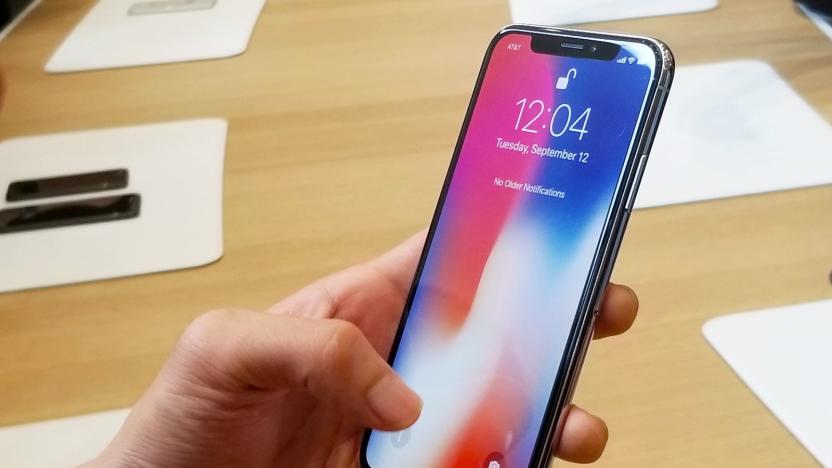
iPad Pro could be Apple's next device to use Face ID
It's safe to assume that the face recognition system in the iPhone X will eventually reach other devices, but which ones are next in line? KGI's Ming-Chi Kuo might have an idea. The historically accurate analyst expects the next generation of the iPad Pro to adopt the TrueDepth camera and, by extension, Face ID. This would unify the experience across Apple's mobile devices, the analyst says, and would spur developers knowing that they could use face recognition across multiple Apple devices, not just one handset. The new iPads would ship sometime in Apple's fiscal 2018, which ends in September of next year.
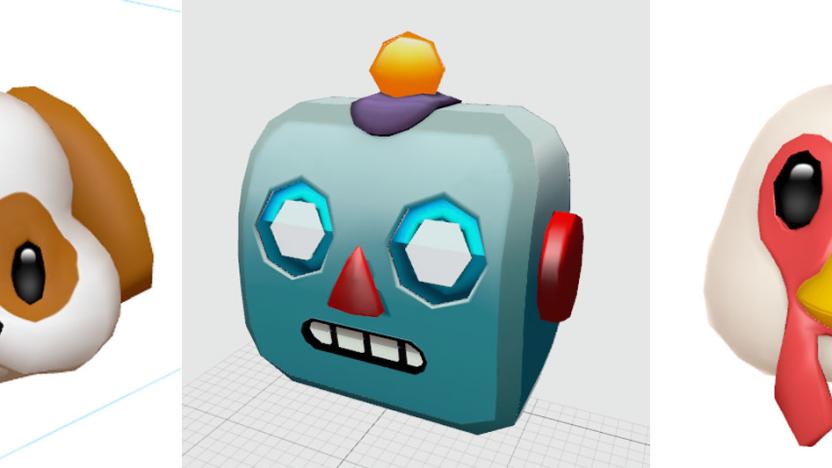
The next iPhone creates animated emoji from your facial expressions
You may already know that the next iPhone will use face detection for all kinds of clever tricks, but here's one you probably weren't expecting: customized emoji. The 9to5Mac crew has discovered that leaked "gold master" iOS 11 firmware includes references to 'Animoji,' or 3D emoji that you create using your facial expressions and voice. Pick one of the familiar non-human faces in the emoji library and it'll map your eye, mouth and cheek expressions to that character -- you can make a robot smile or have a dog raise its eyebrows. Even the poo emoji can be animated. This comes across as a gimmick (we can see many people dropping this once the novelty wears off), but it shows what's possible now that Apple has face tracking at its disposal. And there's more to the leak than just emoji.
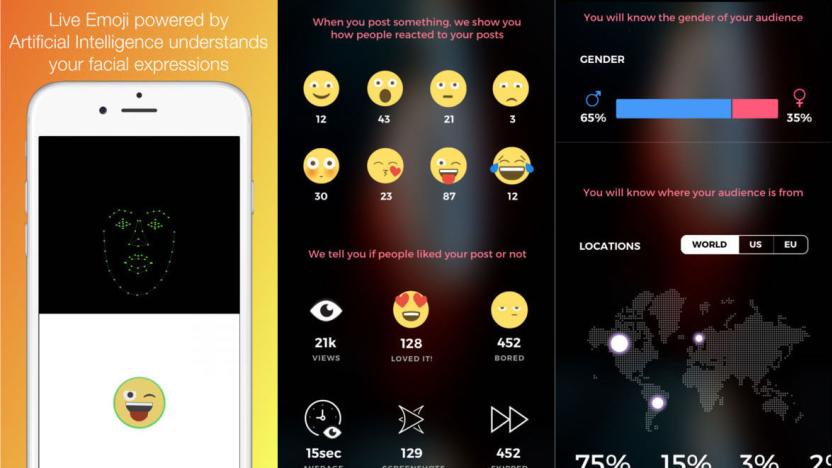
Polygram is a new social network powered by facial recognition
There's a new social network in town and it's packed with some pretty smart and savvy features. Polygram's main contribution to the hard-to-break-into social media world is its ability to detect facial expressions, allowing users to to respond to messages with an emoji based on their actual expression. And rather than just tallying likes or a selection of reactions that viewers have to choose between and click, Polygram allows users to see the face-based emotional response of those that viewed their post.
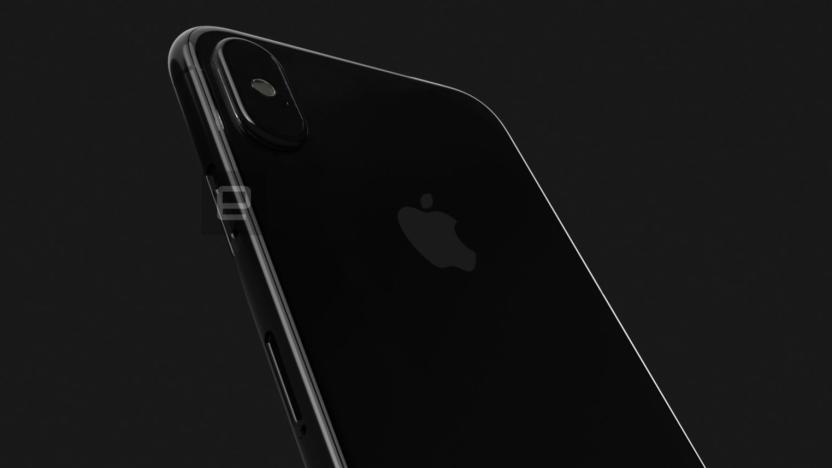
The next iPhone reportedly scans your face instead of your finger
Rumormongers have long claimed that Apple might include face recogition in the next iPhone, but it's apparently much more than a nice-to-have feature... to the point where it might overshadow the Touch ID fingerprint reader. Bloomberg sources understand that the new smartphone will include a depth sensor that can scan your face with uncanny levels of accuracy and speed. It reportedly unlocks your device inside of "a few hundred milliseconds," even if it's laying on flat of a table. Unlike the iris scanner in the Galaxy S8, you wouldn't need to hold the phone close to your face. The 3D is said to improve security, too, by collecting more biometric data than Touch ID and reducing the chances that the scanner would be fooled by a photo.

Airports may use face recognition to screen US citizens (update: more info)
Right now, the US is trotting out an airport security plan revolving around facial recognition. It's supposed to automatically register visitors to the US when they leave, and signal when they come back. However, Customs and Border Protection now wants to expand the effort to include virtually every situation where you normally need an ID -- and that could include scanning US citizens. The agency's John Wagner has floated the possibility that face recognition could also be used to scan all arrivals, TSA checkpoints and lounge access, including citizens. CBP hasn't committed to a firm plan, but it tells The Verge it wants to "open the dialogue" to people outside its walls.
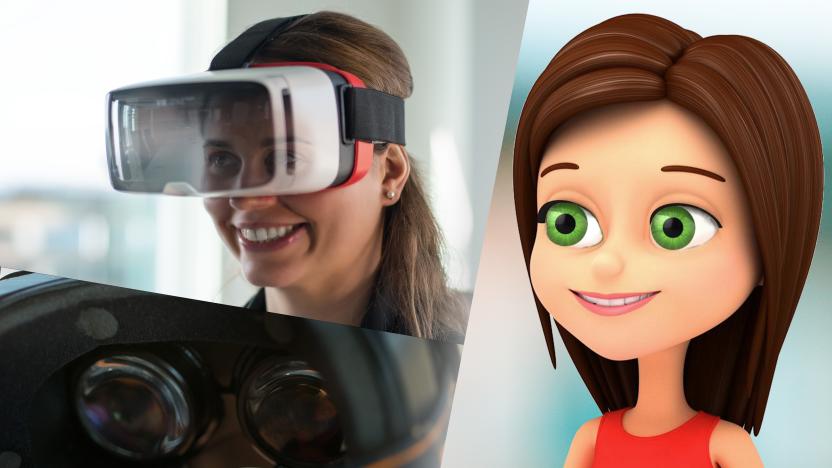
'Face-sensing' headsets show your real-life expressions in VR
Existing VR systems and experiences are immersive, engaging and sometimes even interactive. But they don't offer a quick, easy way for you to express your emotions. Medical device maker MindMaze has come up with a novel, compelling way to convey your facial expressions in VR called Mask. It's a foam insert that's compatible with existing headsets and uses diodes to read your biosignals and muscles. The potential applications here are plenty: You could deduce, from your opponents' faces, when they're preparing to shoot or see a new acquaintance laugh at your joke in social VR scenarios. But it won't be something you can buy. Instead, the company is licensing its technology to manufacturers to embed inside headsets.

Smart 3D modeling lets you mess with faces in videos
Have you ever wanted to mess with a video by making its cast say things they never would on camera? You might get that chance. Researchers have built a face detection system that lets you impose your facial expressions on people in videos. The software uses an off-the-shelf webcam to create a 3D model of your face in real time, and distorts it to fit the facial details in the target footage. The result, as you'll see below, is eerily authentic-looking: you can have a dead-serious Vladimir Putin make funny faces, or Donald Trump blab when he'd otherwise stay silent.

Apple buys AI firm that detects emotions in facial cues
If it wasn't already clear that Apple is getting serious about artificial intelligence, it is now. The company has confirmed that it bought Emotient, a fledgling outfit that uses AI to gauge emotions based on facial expressions. As usual, the Cupertino crew isn't saying what its plans are. However, Emotient's specialty is in detecting your overall sentiment, like contentedness or frustration. Combined with the AI-powered assistant tech from VocalIQ, it wouldn't be shocking if Apple is working on helper software that genuinely understands your moods and reactions. There's certainly pressure to do so -- with both Facebook and Google working on AI-driven chat assistants, Apple might not want to feel left out. [Image credit: Getty Images]

Computers learn how to spot hidden facial expressions
Machines are good at spotting obvious emotions like smiles, but they're not so hot at detecting the extremely brief microexpressions that reveal when people are covering up their true feelings. They may have a keener eye in the future, though: researchers have developed a computer vision algorithm that magnifies facial expressions, making it possible to catch the tiniest bit of displeasure or surprise. While some humans have a knack for spotting these subtle cues, the algorithm is far more effective in early tests -- you likely wouldn't fool the computer into thinking everything was hunky dory.

Google can spot friends nearby and tell if you're glad to see them
Are you happy that Google's new Play Services software for Android developers is out? If not, one of the new features may tell you to turn that frown upside down. Google's latest APIs for Android apps include "Mobile Vision" face detection and "Nearby Messages" notifications. Mobile Vision works with video or still images to detect faces at any angle or orientation and determine if a person is smiling or has their eyes closed (see the video, below). Google points out, however, you won't be able to go all Enemy of the State, because it's not a facial recognition app.

Microsoft thinks it can guess your age using facial recognition
Since we're right smack in the middle of Microsoft's BUILD dev conference, the company's showing off one of it's Azure APIs with a site you can put to the test. How-Old.net allows you to upload a picture before the site recognizes faces and analyzes them to determine their age. No, I'm not 41... I'm 31, and that picture is from over two years ago. Other folks here at Engadget received results closer to their real age, but it made us wonder: why not use a web cam to snap a picture under current conditions. You know, after I've had a chance to apply my daily dose of wrinkle remover. Perhaps that option on the way.

DC airport tries using face recognition to catch imposters
If you come to the US through Washington DC's Dulles airport in the near future, don't be surprised if Customs and Border Protection takes your snapshot before letting you through. The agency has confirmed to Motherboard that it will be testing a facial recognition system which captures a photo and compares it against your passport picture to see if you're an imposter. The relatively short (2 to 3 months) trial won't rely solely on face detection to flag suspicious travelers, but it could give customs agents a way to double-check identities without relying so heavily on keen eyes and intuition.





